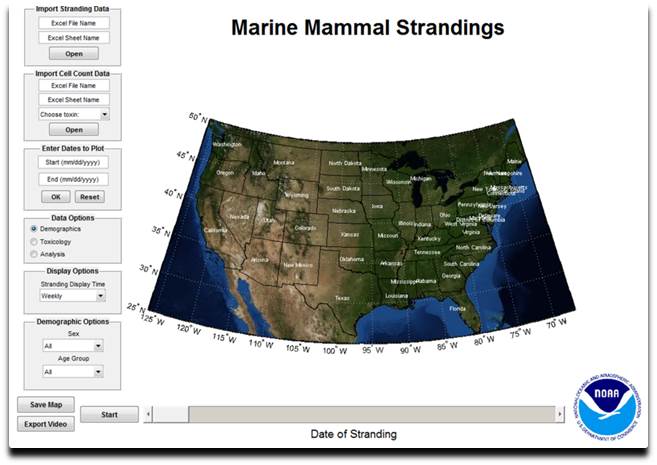A dynamic mapping tool allowing users to view marine wildlife health data in variable space and time was recently developed by a NOAA Hollings Scholar working with National Centers for Coastal Ocean Science and National Marine Fisheries Service scientists. Equipped with filters to display health data by time, demographic category, and exposure status,data can be viewed simultaneously with environmental conditions such as algal counts, water temperature, and salinity.

Bottlenose dolphin stranding data (location and date of stranding) and algal toxin exposure data (via tissue analyses) helped demonstrate the tool’s functionality. Although applicable for any marine species, the tool can be used to examine temporal and spatial patterns of dolphin strandings, as well as diagnosed pathologies and health conditions for live dolphins sampled during health assessments (disease, poor body condition, hematological abnormalities, etc.).
This tool will assist researchers studying marine wildlife health effects resulting from exposure to environmental and anthropogenic stressors.
